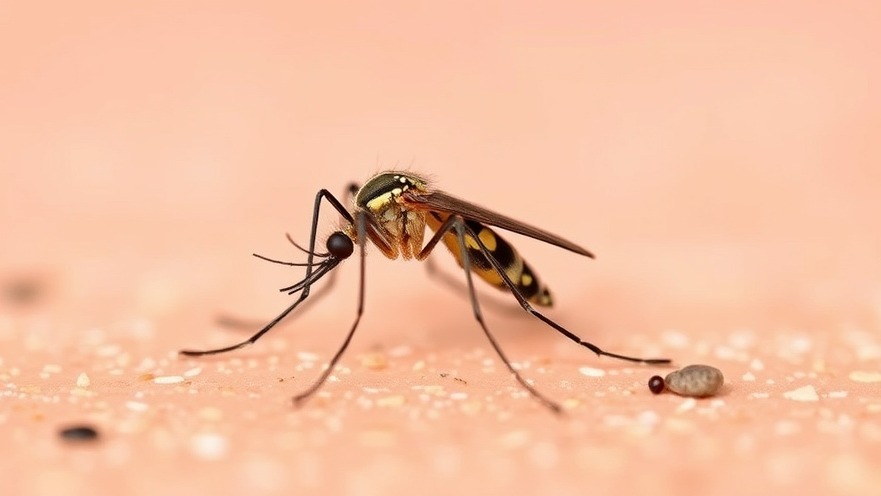
The Rise of Dengue: An Urgent Call for Innovation
Dengue fever is no longer confined to tropical areas; its reach is expanding as climate change alters the habitats suitable for mosquitoes. With warmer temperatures enhancing both the reproduction and survival rates of these disease vectors, dengue now poses a significant threat to populations globally. As a concierge health practitioner, understanding the implications of these shifts is crucial for your patient's well-being and your practice's preparedness.
A Breakthrough in Disease Research: The Dengue-On-a-Chip
In a groundbreaking advancement, researchers from Leiden University pioneered the first-ever dengue-on-a-chip. This innovative model allows scientists to simulate and study the virus's pathological progression within the human body. Principal Investigator Alireza Mashaghi emphasizes the need for this technology, noting a significant gap in available models for studying dengue. Previously, research faced limitations due to the disease's complex interaction with human systems, making it difficult to explore therapeutic avenues.
How the Dengue-On-a-Chip Works
This state-of-the-art organ-on-a-chip technology recreates the physiological conditions within human cells, particularly focusing on how the dengue virus causes hemorrhagic shock—a life-threatening condition characterized by severe blood loss and organ failure. Mechanical properties of blood vessel lining cells alter when infected with the virus, leading to compromised blood vessel integrity. Mashaghi's research underscores how understanding these mechanical changes can lead to better intervention strategies.
The Impact of Mechanical Properties on Disease Progression
Historically underexplored, the study of mechanical properties may revolutionize our approach to various diseases, including viral infections. This research connects the dots between the virus behavior and human physiological response, offering potential avenues to mitigate devastating effects. As practitioners, these insights can guide treatment decisions and patient education, emphasizing the need to monitor not just chemical but also physical health markers in patients at risk.
Future Directions: Modeling Dengue's Skin Impact
The research team is already planning further experiments to explore how dengue impacts the skin—the first site of interaction following a mosquito bite. Given that skin health is influenced by external factors like heat and humidity, these newer models promise to extend our knowledge and improve preventive measures for patients in vulnerable regions.
What This Means for Your Practice
As a health practitioner aiming to stay ahead of emerging medical news, the development of tools like the dengue-on-a-chip is invaluable. These models hold the promise of speeding up drug testing and potential treatment strategies, potentially reducing reliance on animal testing while lowering costs. Incorporating knowledge from these innovative studies into your practice can empower informed decision-making and enhance health outcomes for your patients at risk of dengue.
Time to Act: How Practitioners Can Prepare
With dengue's expansion posing imminent risks, it is essential for health practitioners to stay informed about the latest research and adjust their preventive strategies accordingly. This includes advocating for vaccinations where available, staying abreast of local dengue outbreaks, and educating patients about preventive measures against mosquito bites. Empower yourself to utilize the latest trends in healthcare technology and research to better serve your patients.
Conclusion: Join the Fight Against Dengue
For healthcare practitioners dedicated to improving patient outcomes, staying informed about emerging threats like dengue is paramount. As this disease continues to spread, advancements like the dengue-on-a-chip herald a new era of medical innovation that can enhance treatment strategies. Engage with ongoing research, promote awareness, and lead initiatives in your practice to combat this growing health concern.
 Add Row
Add Row  Add
Add 






Write A Comment